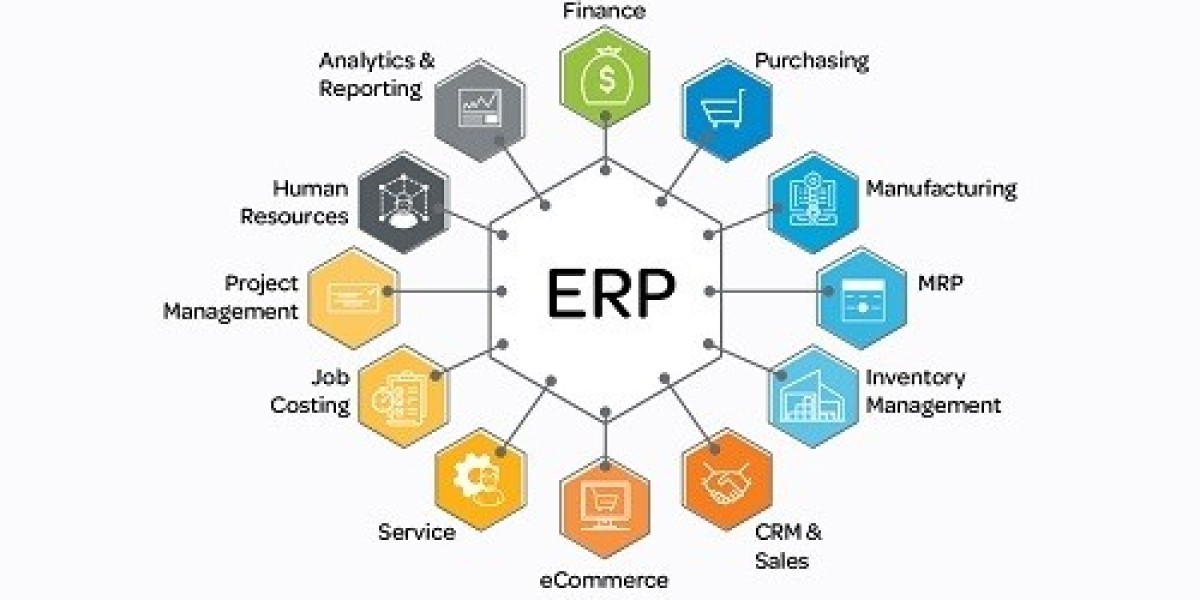The Enterprise Software Market is evolving rapidly as businesses continue to digitize operations to enhance efficiency and productivity. This software category, which encompasses systems used for enterprise resource planning (ERP), customer relationship management (CRM), supply chain management (SCM), and other business-critical applications, is vital for modern businesses. As organizations face growing pressure to streamline operations, integrate data, and enhance customer service, the demand for enterprise software solutions has surged globally.
Enterprise Software Market Overview -
The global enterprise software market is projected to grow significantly in the coming years. It serves various industries, including manufacturing, retail, healthcare, banking, and finance, by providing solutions for business automation, data management, and decision-making. The rapid digital transformation across industries and the increasing need for real-time data analytics and process automation are driving the market's expansion. Additionally, the shift toward cloud-based enterprise software solutions offers businesses scalability, flexibility, and cost-efficiency.
Get a sample PDF of the report at –
https://www.marketresearchfuture.com/sample_request/2442
Key Market Drivers -
Several factors are fueling the growth of the enterprise software market. The primary drivers include the increasing demand for automation, the rise of data analytics, and the adoption of cloud technologies. Companies are leveraging cloud-based enterprise solutions for their cost-effectiveness and ability to support remote and hybrid work environments. Furthermore, the growing importance of data security and compliance regulations has led to increased investments in secure software solutions.
Additionally, the widespread adoption of artificial intelligence (AI) and machine learning (ML) in enterprise software is revolutionizing business processes. These technologies enhance predictive capabilities, streamline workflows, and provide insights that help businesses stay competitive in the market.
Market Segmentation -
The enterprise software market is segmented based on deployment type, application, and region. The two primary deployment models are cloud-based and on-premise solutions. Cloud-based enterprise software is gaining traction due to its scalability, cost-effectiveness, and ease of integration with other applications. On the other hand, on-premise solutions are preferred by organizations that require more control over their data and infrastructure.
From an application perspective, enterprise resource planning (ERP) and customer relationship management (CRM) software hold the largest market share. ERP software helps businesses integrate various functions, including finance, human resources, and supply chain management, into a unified system. CRM software, on the other hand, assists organizations in managing customer interactions, improving sales processes, and enhancing customer relationships.
Key Players in the Market -
Several prominent players dominate the enterprise software market, providing innovative solutions to businesses worldwide. Companies such as Microsoft, Oracle, SAP, and Salesforce are leading the way in the ERP, CRM, and cloud-based solutions sectors. These firms are investing heavily in research and development to improve the functionality, user experience, and scalability of their software offerings.
Startups and smaller companies are also entering the market with niche solutions tailored to specific industries or business needs. This growing competition fosters innovation and improves the overall quality of enterprise software.
Recent Developments -
The enterprise software market has seen a wave of developments in recent years. The rise of AI-powered enterprise software is one of the most notable trends. These solutions leverage AI to optimize workflows, automate processes, and predict business outcomes with greater accuracy. Moreover, businesses are increasingly adopting low-code and no-code platforms that allow non-technical users to create customized applications without relying on developers. This shift is democratizing software development and enabling companies to build solutions tailored to their unique needs.
Additionally, the COVID-19 pandemic accelerated the digital transformation of businesses, further increasing the demand for enterprise software solutions. The need for remote work tools, collaboration platforms, and digital customer engagement solutions has never been more crucial, driving the adoption of cloud-based enterprise software.
Market Challenges -
While the enterprise software market continues to grow, several challenges must be addressed. One significant challenge is the integration of new software solutions with existing legacy systems. Many businesses still rely on outdated infrastructure, making it difficult to transition to modern enterprise software solutions without significant investment in upgrades.
Another challenge is the growing complexity of enterprise software. As businesses increasingly seek integrated solutions that combine ERP, CRM, and other functionalities, the software becomes more complex, requiring specialized knowledge to deploy and maintain. Additionally, cybersecurity threats remain a concern as enterprises store sensitive data on cloud platforms.
Regional Analysis -
The enterprise software market is seeing strong growth across various regions. North America is the leading region, driven by the high adoption of technology in the U.S. and Canada. The presence of large enterprises and a highly developed IT infrastructure has made this region a hotbed for enterprise software innovation and deployment.
Europe also holds a significant market share, with businesses in countries such as Germany, the U.K., and France increasingly adopting enterprise software solutions to improve operational efficiency. The Asia-Pacific region is expected to witness the highest growth rate, primarily due to the rising digitalization in emerging economies like India, China, and Japan. Businesses in these regions are adopting cloud-based solutions to scale their operations and compete on a global scale.
Browse a Full Report –
https://www.marketresearchfuture.com/reports/enterprise-software-market-2442
Market Outlook -
The enterprise software market is expected to continue expanding at a robust pace. The rise of cloud computing, AI, and big data analytics will likely remain the central drivers of this growth. Furthermore, businesses’ increasing need for agile, secure, and scalable software solutions will foster innovation and fuel competition within the market. As organizations face evolving challenges, the demand for enterprise software that can adapt to their changing needs will be crucial.
The enterprise software market is poised for significant growth as businesses continue to embrace digital transformation and automation. The increasing demand for cloud-based solutions, AI integration, and enhanced data analytics will drive market development across various regions. However, organizations must navigate challenges such as legacy system integration and cybersecurity risks to leverage the full potential of enterprise software solutions. As the market evolves, key players and emerging startups will continue to shape the future of enterprise software, providing businesses with the tools they need to thrive in a digital-first world.
Top Trending Reports:
IT Asset Management Software Market
Microservices Architecture Market
Contact
Market Research Future (Part of Wantstats Research and Media Private Limited)
99 Hudson Street, 5Th Floor
New York, NY 10013
United States of America
+1 628 258 0071 (US)
+44 2035 002 764 (UK)
Email: sales@marketresearchfuture.com
Website: https://www.marketresearchfuture.com







